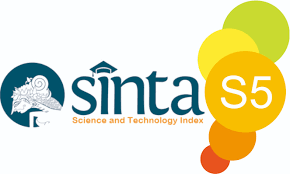E-Government Sebagai Realisasi Sistem Jaringan Terdesentralisasi Di Indonesia: Implikasi Sosial Dan Politik
Abstract
The decentralized system is the concept of granting authority by the central government to
local governments to determine the policy direction of each region. E-government is present as
the realization of a social and political system that is decentralized and mediated by information
and communication technology. E-government is the use of technology by the government to
provide effective and efficient information and services to the public. The community can enjoy
various programs, such as e-monitoring, e-education, e-office, e-permit, e-health, and media
center. In Indonesia, the development of e-government still needs to be improved. Several
problems arise, such as lack of government socialization, limited human resources,
infrastructure, which is still incomplete, access constraints are still challenging for some regions,
and inadequate e-government services. Therefore, a joint contribution is needed between the
government, the private sector, the media, and the community to realize an e-government system
as a step towards open government and good governance.




